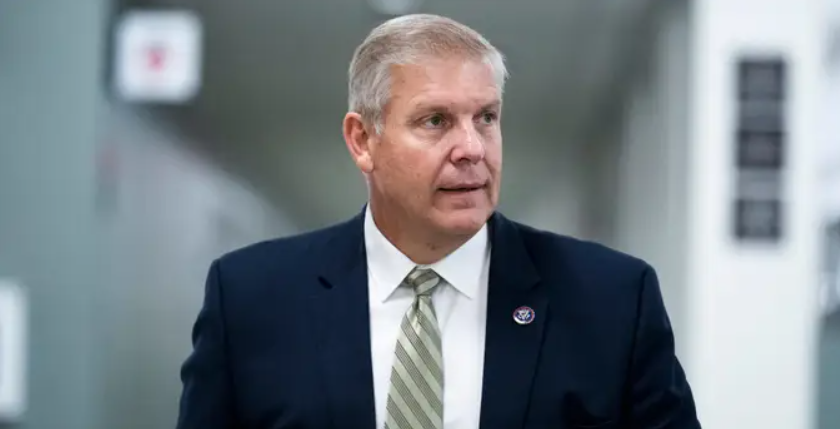In a stunning revelation, a House panel announced on Monday that it has recovered more than 100 “deleted” and encrypted files from the January 6 Committee.
The panel, led by Rep. Barry Loudermilk (R-GA), has been conducting a counter-inquiry into the controversial committee that shut down at the beginning of the year. The recovered files have raised concerns about what else the committee may have been trying to hide from the American people.
According to Loudermilk, the former January 6 Committee went to great lengths to prevent the public from seeing all of the evidence it had gathered during its investigation. However, the House Administration Subcommittee on Oversight, which Loudermilk chairs, has been able to retrieve a significant number of previously deleted files. This discovery has only added to the mounting questions surrounding the integrity of the January 6 Committee’s investigation.
Loudermilk’s discovery was made public in response to a recent Fox News report, in which he demanded a list of passwords from Committee chair Rep. Bennie Thompson (D-MS) that would allow his forensic team to access locked files. Thompson, in turn, responded with a letter claiming he had “no idea” what Loudermilk was referring to in regard to encrypted, password-protected files.
This back-and-forth between the two lawmakers is just the latest development in a series of letters dating back to last year, in which Loudermilk raised concerns about the Committee’s failure to properly archive video recordings of interviews and depositions in the House, as well as transcripts mentioned in a letter to the Homeland Security Department.
In a move that is sure to raise eyebrows, Loudermilk has also written to the White House and Department of Homeland Security general counsels, demanding access to “unedited and unredacted transcripts” of testimony given to the January 6 Committee by the two entities.
This request comes on the heels of Loudermilk’s discovery that one of the recovered files from the Committee “disclosed the identity of an individual whose testimony was not archived.” Furthermore, Loudermilk has expressed concern that the Committee’s hard drives, which were archived with the Clerk of the House, contain less than the 4-terabyte digital archive that was initially touted by Thompson.
The exact contents of the recovered files have not been made public, but Loudermilk has indicated that they include information shared with the Department of Justice and the Fulton County District Attorney. This revelation has raised questions about how this information may have influenced ongoing investigations and prosecutions related to the January 6th events. Former President Donald Trump, who is facing multiple legal challenges stemming from January 6th, has even suggested that the recovered files could potentially “exonerate” him.
The January 6 Committee was originally formed as a bipartisan effort, with then-Reps. Liz Cheney (R-WY) and Adam Kinzinger (R-IL) as members. However, many Republicans have openly criticized the Committee, including Loudermilk who has accused the group of spreading false allegations about him giving a “reconnaissance tour” a day before the U.S. Capitol breach. Now, with Loudermilk’s discovery of “deleted” and encrypted files, allegations of obstruction of justice have been added to the growing list of concerns surrounding the Committee.
House GOP Conference Chairwoman Elise Stefanik (R-NY) has weighed in on the latest developments, calling the Committee’s actions “illegal” and accusing the group of obstructing justice. As more details continue to emerge, the controversy surrounding the January 6 Committee is only intensifying.
The American people are left to wonder what other information the Committee may have been withholding, and how it may have impacted their work. With Loudermilk’s determination to uncover the truth and demand transparency, it is clear that this issue is far from over.

